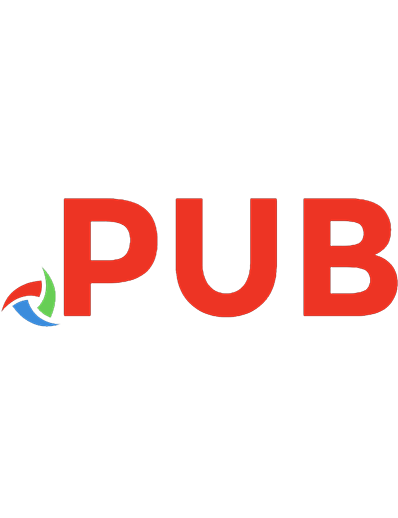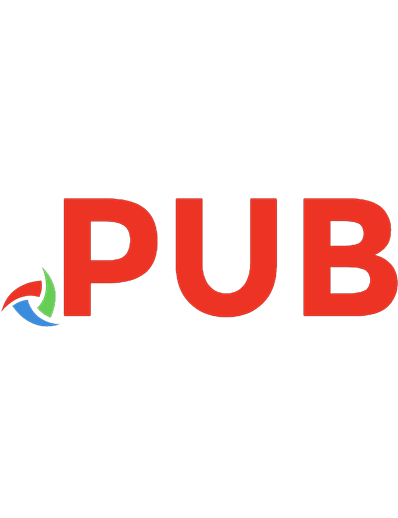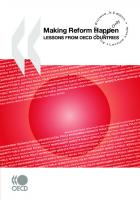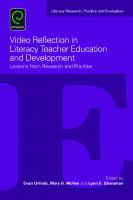Making Open Development Inclusive: Lessons from IDRC Research 9780262358835, 0262358832
Drawing on ten years of empirical work and research, analyses of how open development has played out in practice. A deca
352 68 2MB
English Pages 512 [514] Year 2020
Table of contents :
Cover
Title Page
Copyright
Contents
Preface
Acknowledgments
Foreword by Robin Mansell
References
1. Introduction: Governing Openness in an Unequal World
Introduction
Openness, Inclusion, and Development
Open Development in an Unequal World
Openness = Less Equality?
Policy and Practice Dynamics in Openness
Governing Open Development for Inclusion
Structure of the Book
Notes
References
I: Defining Open Development
2. Updating Open Development: Open Practices in Inclusive Development
Introduction
(Re)defining Open Development
Contributing Schools of Thought
Openness as Praxis
Conclusion
Notes
References
3. Open Innovation in Development: Integrating Theory and Practice across Open Science, Open Access, and Open Data
Introduction
Extending Open Development Theory
(Open) Innovation for Development
Innovation through Openness
A “Source” of Openness to Interpretation
A Crosscutting Concept of Openness through Innovation in Practice
Open Access
Open Education
Open Data
Open Science
Summary and Next Steps
Notes
References
II: Governing the Open Development Ecosystem
4. Gender and Equity in Openness: Forgotten Spaces
Introduction: Why Is Gender Equity Important?
Social Inclusion and Exclusion
Gender Equity
Interface between Gender and Openness: Key Concepts
Engendering Open Concepts
Access and Participation
Inclusion and Nondiscrimination
Situating Knowledge
Gender Analysis of Open Practices
Using a Gender Analysis Framework for Openness
Vignettes: GAFO Analysis
Enabling Spaces for Gendered Participation
Conclusion: What Have We Learned?
Notes
References
5. The Geographic Contours of Openness
Introduction
Can We Map Openness?
Predigital Geographies of Information
Changing Geographies after the Information Revolution?
Geographies of Participation
Geographies of Representation
Conclusions
Acknowledgments
Notes
References
6. Ecologies of (Open) Access: Toward a Knowledge Society
Introduction
Tensions of Openness in the Access Ecosystem
Beyond the Tensions: Rethinking Copyright
Moving from a Knowledge Economy to a Knowledge Society
Acknowledgments
Notes
References
7. Open Provision: Changing Economic and Human Development Perspectives
Introduction
Openness and Open Provision
Economic Frameworks and Open Provision
Policy and Research Implications
Afterword
Notes
References
8. Openness in Telecommunications Reform and Practice: The Case of Open Access Broadband Networks, Public Wi-Fi, and Zero-Rating
Introduction
Evolution of Open Access Regulation in Telecommunications
Conceptualizing Open Access
Cases: Mandatory Open Access, Voluntary Open Access, and Variations on the Commons
Assessment of Outcomes and Policy Implications
Conclusions
Acknowledgments
Notes
References
Interviews
9. Who Benefits from Open Models? The Role of ICT Access in the Consumption of Open Activities
Introduction
The Analytical Framework: What We Mean by Open and Context
Creating User Profiles by Different Types of Internet Access
The Effect of Forms of Access in the Different Uses of Open Activities
Multivariate Analysis: Determining the Probability of Carrying out Open Activities
Conclusion
Notes
References
III. Governing Open Development Applications
10. Open Government Data for Inclusive Development
Introduction
Structural Inequality and Development in the Information Society
Open Data and Inclusion as Political Participation
Networks, Data, Power, and Inclusion
Methodology
Findings and Discussion
Conclusion
Notes
References
11. Governing Open Health Data in Latin America
Introduction
Open Data Ecosystems in Public Health Services
The Knowledge Commons Framework for Studying Open Data in Latin America
Research Methods and Significance of the Empirical Setting
Three Cases of Opening up Health Data in Latin America
Governing Open Data Health Commons
Conclusions
Acknowledgments
Notes
References
12. Open Educational Resources and Practices in the Global South: Degrees of Social Inclusion
Introduction
Conceptual Framing of OER, OEP, and Social Inclusion
Perspectives on How OER and OEP Relate to Social Inclusion
Methodological Approach: Metasynthesis
Findings
Conclusion
Acknowledgments
Notes
References
13. Toward an Inclusive, Open, and Collaborative Science: Lessons from OCSDNet
Introduction
Conceptual Framework and Methodologies of OCSDNet
Findings from OCSDNet Projects
Cross-Cutting Lessons and Conclusions
Notes
References
14. The Inclusivity of Crowdsourcing and Implications for Development
Introduction
Crowdsourcing and Inclusivity
A Framework for Inclusion in Crowdsourcing
Methodology
Understanding Inclusivity through Sharma’s Framework
Human Capital
Linkages and Trust
External Environment
Vision and Strategy: What Types of Inclusion, and at What Stage
Motive Alignment of the Crowd
Conclusion
Appendix
Notes
References
15. Open Innovation in Africa: Current Realities, Future Scenarios, and Scalable Solutions
Introduction
Current Realities: The Collaborative Dynamics of African Innovation
Future Scenarios: Knowledge Governance Models for Multiple Futures
Forces Driving Change
Implications for Knowledge Governance
Summary Analysis of Future Scenarios
Conclusion: Scaling Up African Innovation?
Notes
References
16. Conclusion: Understanding the Inclusive Potential of Open Development
Introduction
Assumptions and Ways of Seeing Inclusion
Lessons for Openness and Inclusion
Key Takeaways on Facilitating Inclusion in Open Practices
Final Thoughts: Rethinking Development?
Notes
References
Contributors
Editors
Chapter Authors
Index










